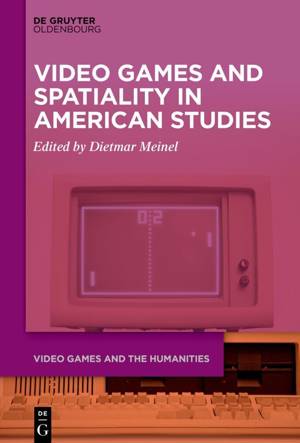
- Retrait gratuit dans votre magasin Club
- 7.000.000 titres dans notre catalogue
- Payer en toute sécurité
- Toujours un magasin près de chez vous
- Retrait gratuit dans votre magasin Club
- 7.000.0000 titres dans notre catalogue
- Payer en toute sécurité
- Toujours un magasin près de chez vous
Video Games and Spatiality in American Studies
Description
While video games have blossomed into the foremost expression of contemporary popular culture over the past decades, their critical study occupies a fringe position in American Studies. In its engagement with video games, this book contributes to their study but with a thematic focus on a particularly important subject matter in American Studies: spatiality. The volume explores the production, representation, and experience of places in video games from the perspective of American Studies. Contributions critically interrogate the use of spatial myths ("wilderness," "frontier," or "city upon a hill"), explore games as digital borderlands and contact zones, and offer novel approaches to geographical literacy. Eventually, Playing the Field II brings the rich theoretical repertoire of the study of space in American Studies into conversation with questions about the production, representation, and experience of space in video games.
Spécifications
Parties prenantes
- Editeur:
Contenu
- Nombre de pages :
- 301
- Langue:
- Anglais
- Collection :
- Tome:
- n° 5
Caractéristiques
- EAN:
- 9783111353302
- Date de parution :
- 24-10-23
- Format:
- Livre broché
- Format numérique:
- Trade paperback (VS)
- Dimensions :
- 156 mm x 234 mm
- Poids :
- 467 g






